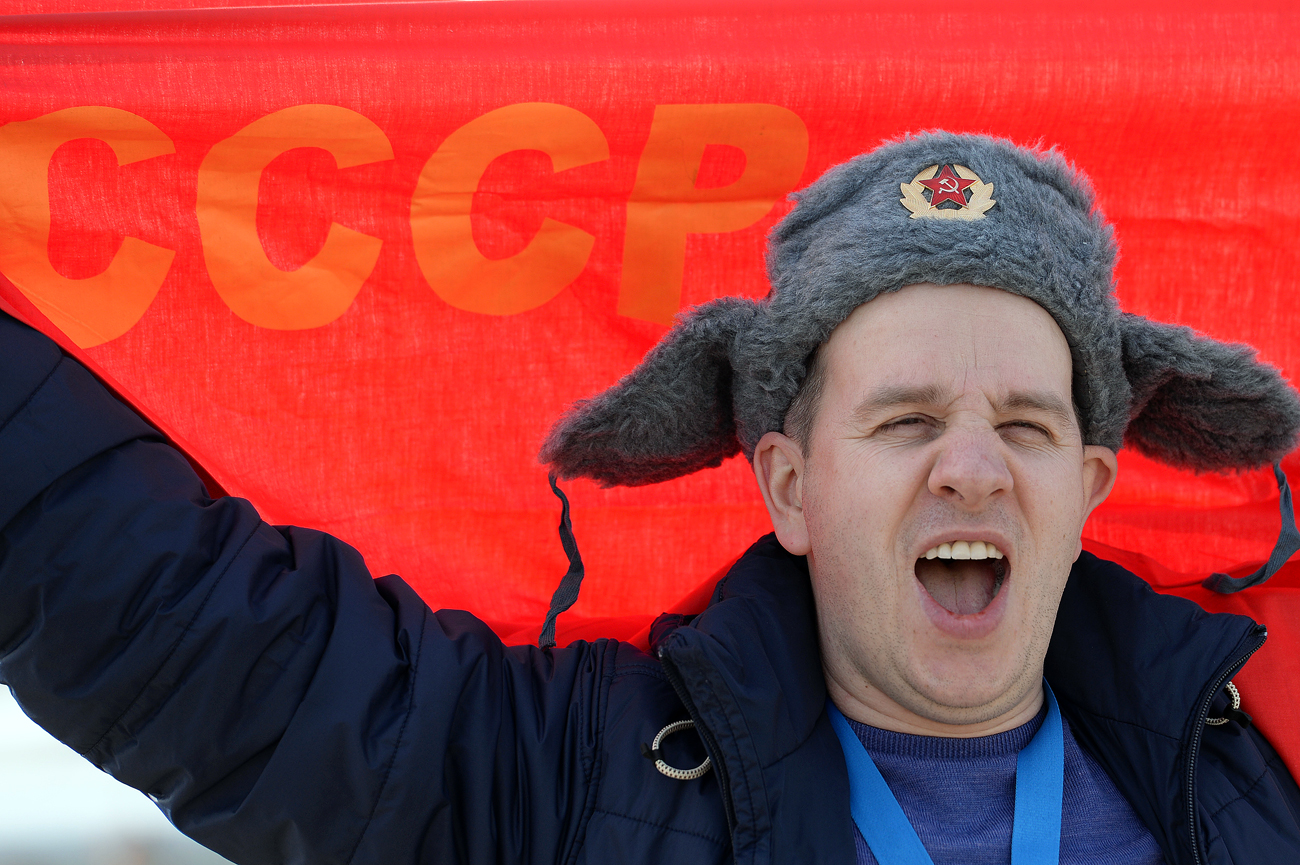
The nostalgia for the Soviet Union is highest among Russians over the age of 55 and those who live in rural areas, according to Levada Center.
Maxim Bogodvid / RIA NovostiWhen the Soviet republics of Russia, Ukraine and Belarus signed the Belavezha Accords on Dec. 8, 1991, dissolving the Soviet Union, Marat was just a few months old. He did not know life in the Soviet Union. Nevertheless, he says he misses that country.
Today Marat, who is being referred to by a pseudonym at his request, is 25 years old. He works in one of the Russian ministries, is satisfied with his salary and life, but still believes that things must have been better in the USSR. "Free education, free medicine," Marat said, listing the advantages of the Soviet state. "People lived modestly but the state took care of them. And now money controls everything, the inequality is immense. Whoever is stronger is right. It wasn't like this in the USSR."
Marat is not alone in his nostalgia. According to sociological surveys, more than 50 percent of Russians regret the collapse of the Soviet Union. In an April 2016 poll by the Levada Center, 56 percent of respondents said they wished the Soviet Union still existed. A recent survey by the All-Russian Center for Public Opinion (VTsIOM) showed that 64 percent of Russians would vote for the preservation of the USSR if a referendum was held today similar to the one held on March 17, 1991, which asked Soviet citizens if it was necessary to preserve the country in its current form.
The nostalgia for the Soviet Union is highest among Russians over the age of 55 and those who live in rural areas, according to Levada Center sociologist Karina Pipiya. But there are a number of those like Marat — young people who are successful, integrated in modern society and who do not remember the Soviet Union — who long for it. A full 50 percent of young people surveyed on the topic by VTsIOM share Marat's opinion, said Mikhail Mamonov, director of the VTsIOM research projects.
Mamonov says that those who are positive about the Soviet Union always point out the same three things: "A small but guaranteed salary, employment, things that are guaranteed for you." In an era of harsh market competition, people want to retreat to a time when they think all these things existed, Mamonov explained.
Levada Center surveys show that nostalgia for the USSR peaked in 2000, when 75 percent of the population said they regretted its dissolution. Throughout the 2000s, the level of nostalgia decreased, reaching its lowest point in 2012 — but even then, 49 percent of the population still expressed regret about the Soviet Union’s breakup. The level of nostalgia began to rise again starting in 2014.
Mikhail Mamonov says its clear that economics are behind the growth of Soviet nostalgia. In the year 2000, the number of Russians living at or below the poverty line reached its peak. Later, as incomes began to grow, fewer people were longing for the past. With the beginning of the economic crisis, nostalgia came back.
Nina Mechtaeva, 65, lived most of her life in the Soviet Union, but unlike many of her peers, she has no desire to return to that country. "Sure, everything now is not perfect," she said.
"But those who say how great it was in the USSR are forgetting about the reality of that life. Constant lines in the stores and hospitals, party assemblies in which people speak about that which they no longer believe in. The country was closed to the world." In Mechtaeva's opinion, many of the people her age who would like to return to the Soviet Union in reality just miss their youth.
Mamonov agrees that the nostalgic image of the USSR clearly differs from the real country. "Today the Soviet Union is greatly idealized. All the positive elements are exaggerated and the negative ones are either forgotten or the level of intensity of the negative memories is reduced."
Despite the popularity of the Soviet era, which is strongly associated with Socialism, modern Russian leftist political movements are not successful. The Communist Party of Russia, which has positioned itself as the heir to the Communist Party of the Soviet Union, received only 13 percent of the vote in the Sept. 18 State Duma elections — a decrease of 6 percent from the December 2011 State Duma elections.
"The love of the USSR does not influence the success of today's leftists, whether they're the Russian Communist Party or the unions," Mamonov said. "In mass consciousness, they are not associated with the Soviet Union." Moreover, he added, "with all the love that Russians have for the USSR, the overwhelming majority — 70-75 percent — says that there will never be a return to it.”
All rights reserved by Rossiyskaya Gazeta.
Subscribe
to our newsletter!
Get the week's best stories straight to your inbox